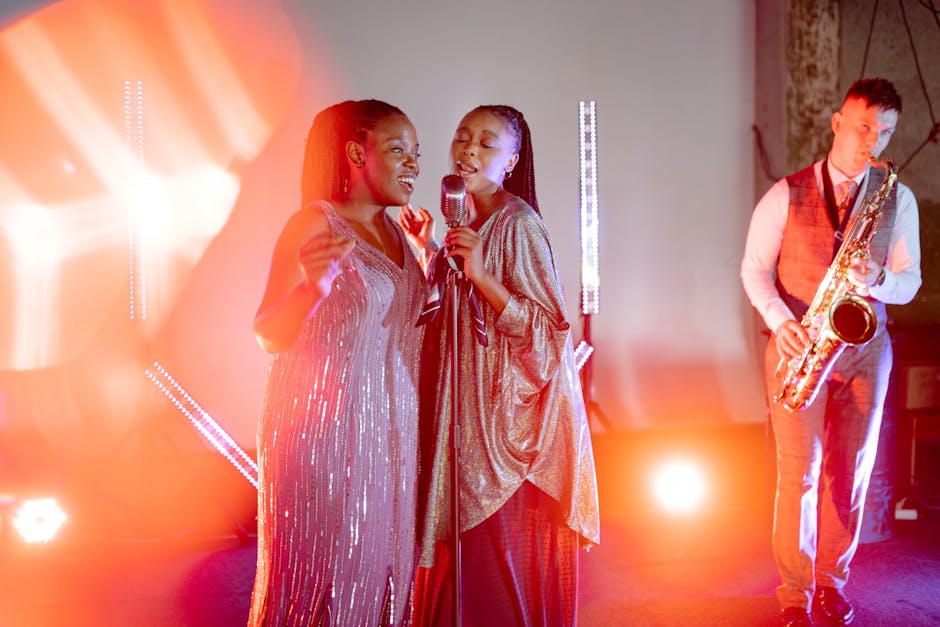Table of Contents
You know, sometimes I sit here, staring at this blinking cursor, trying to make sense of what people actually want to read online these days. Seems like everyone’s chasing the next big thing, the freshest sound, the kids on TikTok. But then something hits you, a bit of old school, just a snippet on the radio, maybe you’re in a grocery store, and bang. It’s there. A Diddy track. One of those diddy songs. And you can’t help but kinda nod your head. Even if you don’t wanna admit it.
It’s a funny old game, this music business. Twenty years I’ve been doing this, watching trends come and go, artists rise and fall, and then there are the ones who just… persist. Like a bad penny, or maybe a good one, depending on your vibe. Sean Combs, or Puffy, P. Diddy, Diddy, whatever he’s calling himself this Tuesday. The man’s a chameleon, always has been. But his music? That stuff sticks. It just does. I remember back when “Can’t Nobody Hold Me Down” dropped. Lord, that was a moment. Everyone was trying to dance like him, or just look cool while standing still. It was the era of shiny suits, right? Madness. Absolute madness. And people bought it. Hook, line, and sinker. Still do, apparently, which is a bit of a head-scratcher when you think about it, all things considered.
The Persistent Power of the Puffy Sound
You gotta wonder what makes some diddy songs just hang around, you know? Like “Mo Money Mo Problems.” That’s practically a national anthem for certain age groups. My niece, bless her heart, born long after Biggie passed, she knows every single word to that track. Every single one. She probably thinks it’s some new TikTok dance challenge tune or something. I try to explain the history, the context, the whole Bad Boy era, and her eyes just glaze over. It’s wild. It shows you, though, that a good beat, a catchy hook, it transcends generations. Even if the messenger, well, let’s just say the messenger has seen a few headlines lately.
It’s all about the catalogue, ain’t it? The back catalogue. That’s where the real money is, where the staying power truly lies. Not the new hot single that’s here today, gone tomorrow. No, it’s those tracks that get licensed for ads, pop up in movies, get sampled by new artists trying to make their mark. That’s the real legacy. And Diddy, for all his various personas and… adventures, he built himself a pretty impressive vault of those.
Who’s Still Spinning Those Diddy Tunes?
So, who actually owns the rights to these diddy songs now, anyway? It’s complicated, that’s what it is. Music rights are a whole tangled mess of publishing, master recordings, neighboring rights, performance rights. It ain’t just one big pot.
Think about the behemoths.
Universal Music Group
They’ve got their fingers in so many pies, it’s hard to keep track. If a song from the Bad Boy era is still making noise, UMG’s probably getting a piece of that action through their publishing arms or distribution deals. They gobble up catalogs like I gobble up biscuits on a Monday morning. They’re the big fish, always have been, always will be. Or until some other bigger fish eats them, which is probably how the universe works now, isn’t it? The money involved is dizzying, truly.
Sony Music Entertainment
They’re another one, right? Been around forever, seen it all. They’ve got publishing divisions that are constantly acquiring rights, cataloguing, making sure those classic tracks keep earning. Imagine the teams of lawyers and accountants, just tracking every single spin of “I’ll Be Missing You” somewhere on the globe. It’s a full-time job for hundreds of people. People probably ask, “Do artists still make money from old songs?” Oh, you bet your bottom dollar they do, especially if they own a piece of the publishing. Sometimes, that’s where the real gold is hidden.
Warner Music Group
And then there’s Warner. The big three, right? They’re always in the mix. These aren’t just record labels anymore; they’re global entertainment powerhouses. They’re diversified, strategic. They’re thinking about sync licenses, new digital platforms, every little corner where a beat can still drop and generate some coin. The ecosystem is so vast, you’d be surprised how many hands touch a single diddy song before a penny gets where it’s supposed to go. Or doesn’t, which is another story entirely.
The Smaller Players and the Catalog Craze
It’s not just the big three, though. Not anymore.
Primary Wave
These folks, they made a name for themselves buying up catalogs. They’re smart. They see the long game. They’re looking at songs that have proven their staying power, that connect with people, and they invest. They acquire, they market, they find new ways to squeeze juice from old fruit. A lot of artists, tired of the industry grind or just wanting a big payday, will sell off their rights to companies like Primary Wave. Makes sense, in a way. Get your lump sum, let someone else worry about the endless paperwork and tracking down royalties from a radio station in, I dunno, Outer Mongolia.
Reservoir Media Management
Another player. These guys are independent but they’ve been really aggressive in the publishing and recorded music space. They understand the value of a solid, enduring piece of music. They’re not just looking for the next pop star; they’re looking for the classics, the evergreen stuff. They’re the ones making sure that when you hear “Bad Boy for Life” in a commercial, someone’s paying for it. That’s their bread and butter. It’s a whole different kind of hustle than what you see on the charts. It’s about property, pure and simple.
And that’s why Diddy, or his estate, or whoever he’s partnered with, still profits from those tunes. Because someone, somewhere, is always listening.
Why Do Certain Tracks Resonate?
You ever think about why some diddy songs just hit different? It ain’t always about the deep lyrics, that’s for sure. A lot of it was vibe. Swagger. The feeling you got when you heard that opening beat. He had a knack for it, for crafting an anthem. Whether he was rapping on it, or just producing it, or just yelling “Bad Boy!” over a track, it worked. The “Gotta Get You Home” vibe, that’s just pure smooth R&B. And then you had “Come With Me,” from the Godzilla movie soundtrack. Remember that one? A true earworm. People ask, “What was Diddy’s biggest hit?” Honestly, depends on how you measure it. Singles, albums, impact? “I’ll Be Missing You” was a phenomenon, no doubt. But “Mo Money Mo Problems” feels more ingrained in the culture for me. It just is.
It’s all about moments. Music captures moments. It ties you to a time, a place, a feeling. And his tracks did that for a lot of folks. For better or worse, the music had an energy. A confidence, even a brashness. You couldn’t ignore it. It just pushed itself out there, demanding attention. That’s what it was, isn’t it? Demanding attention. Always.
The Business of Old Hits: A Tricky Wicket
The world of music publishing, it’s a tricky wicket. You got these big catalogs, worth billions now. People are always buying, selling, trading. You could wake up tomorrow, and the rights to your favorite old jam might be owned by a private equity firm you’ve never heard of, based out of Luxembourg. That’s just how it goes now. The financial world found music, and they saw dollar signs. Used to be it was just the labels and the artists, battling it out. Now it’s the labels, the artists, the private equity, the song funds, the streaming giants. Everyone’s got a piece of the pie. Or wants one.
I always tell young artists, learn your business. Understand where the money comes from, and where it goes. Don’t just sign things because someone tells you to. Your diddy songs, or your own future classics, they might be worth a fortune one day. Don’t let someone else snatch that up from under your nose. That’s the real talk. That’s what twenty years in this chair teaches you.
The Longevity Question: Can Newer Artists Achieve This?
Will the artists of today, with all their streams and their TikTok fame, will they have that same kind of catalog longevity? That’s a good question. That’s a real good question. I reckon a lot of these newer artists, they’re built for speed, not for distance. Everything’s so ephemeral now. A hit lasts six weeks, maybe. Then it’s on to the next one. No time to build that cultural footprint, that deep connection that makes a song unforgettable.
Back in the day, you had time. An album cycle was a year, sometimes more. Songs had room to breathe, to grow on people, to become part of the fabric. Now? You blink, and it’s gone. So, when people ask, “Are Diddy’s songs still relevant in 2025?” I say, look around. You still hear them. You still feel them. They still get played at weddings, at parties, in random stores. They’re just part of the background noise of life now. That’s relevance, innit? That’s the real deal.
The Evolution of an Empire
You know, the interesting thing about Diddy, beyond the music, is how he built that whole empire. It wasn’t just songs. It was fashion, it was spirits, it was media. He understood branding before most people even knew what that word really meant in the context of an individual. He leveraged the music into so much more. And that’s a lesson, right there. It’s not just about the art; it’s about the whole package. It’s about being visible, staying visible, even when the spotlight shifts. That’s a whole other kind of talent, really.
I mean, some folks might ask, “How many hits did Diddy actually have?” And the answer isn’t just about his solo tracks. It’s about the entire Bad Boy roster, the songs he produced, the artists he championed. Faith Evans, Ma$e, The Lox, 112. He curated a sound, a whole movement. That’s a producer’s legacy as much as an artist’s. It all fed into the machine, every single one of those diddy songs and the ones he brought to life for others. It was a golden era for a certain type of hip-hop and R&B. You can’t deny that.
The Staying Power of a Vibe
Ultimately, whether you love him or… well, you know, feel otherwise, the man undeniably crafted some tracks that just refuse to fade away. It’s a testament to the power of a good beat, a memorable sample, and just that certain je ne sais quoi that makes a song stick. They say music is the soundtrack to our lives. And for a lot of people, a good chunk of that soundtrack, for better or worse, has some Diddy in it.
The music business, it changes every five minutes. Used to be mixtapes were a big deal. Then iTunes. Now streaming dominates everything. Will it last? Who knows? But the core product, the actual song, that’s the constant. And some diddy songs, they’ve proven they can weather any storm, any shift in the industry. That’s real power, right there. Not the kind that makes headlines, but the kind that makes you tap your foot in the grocery store. And that, my friend, is saying something.












